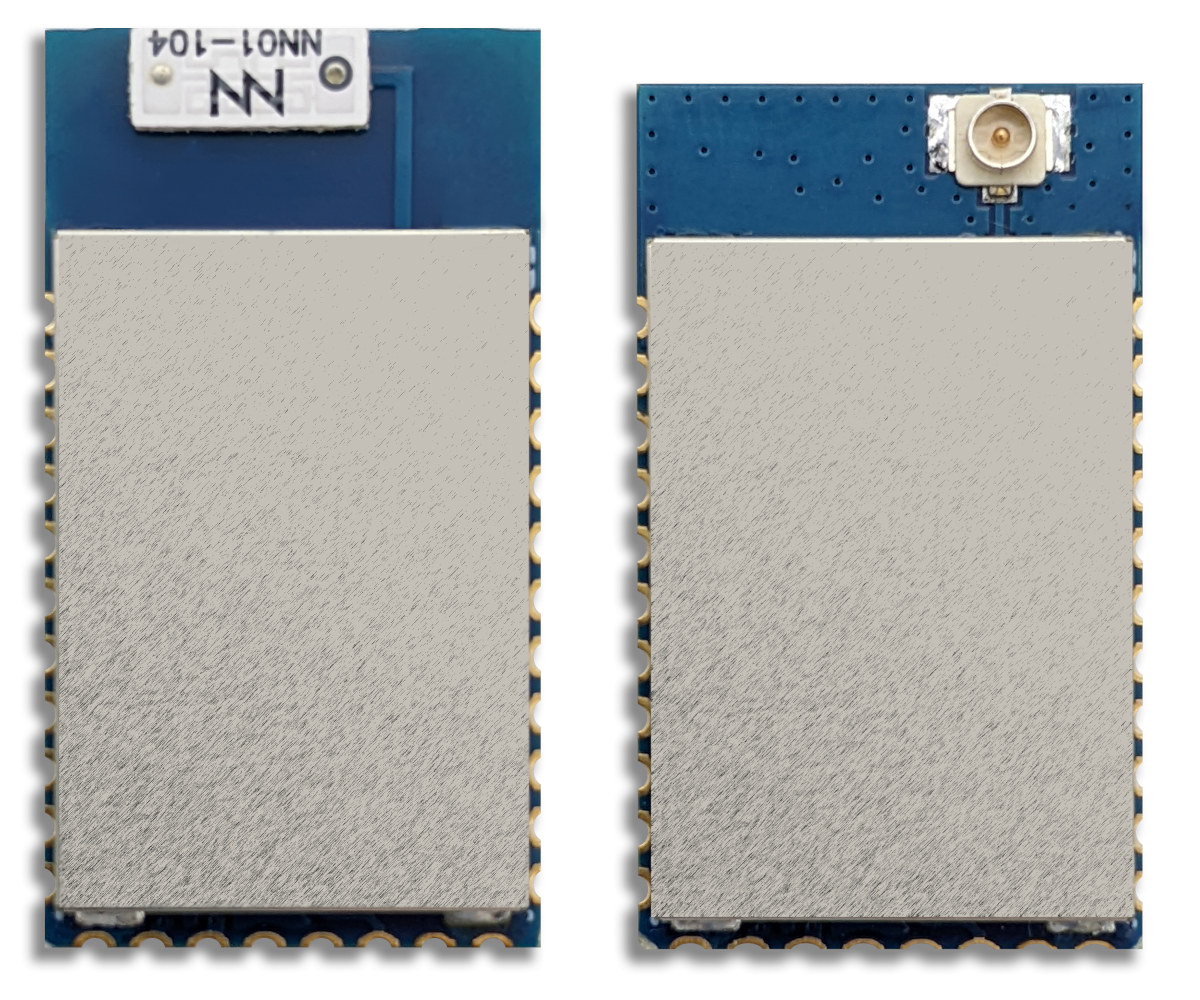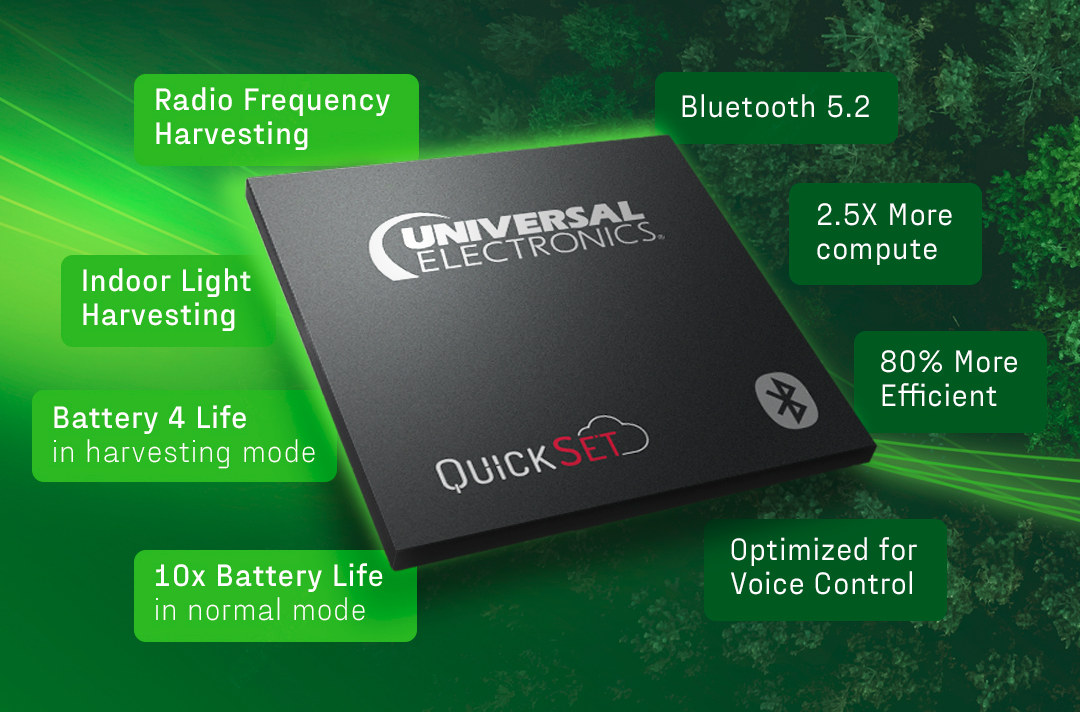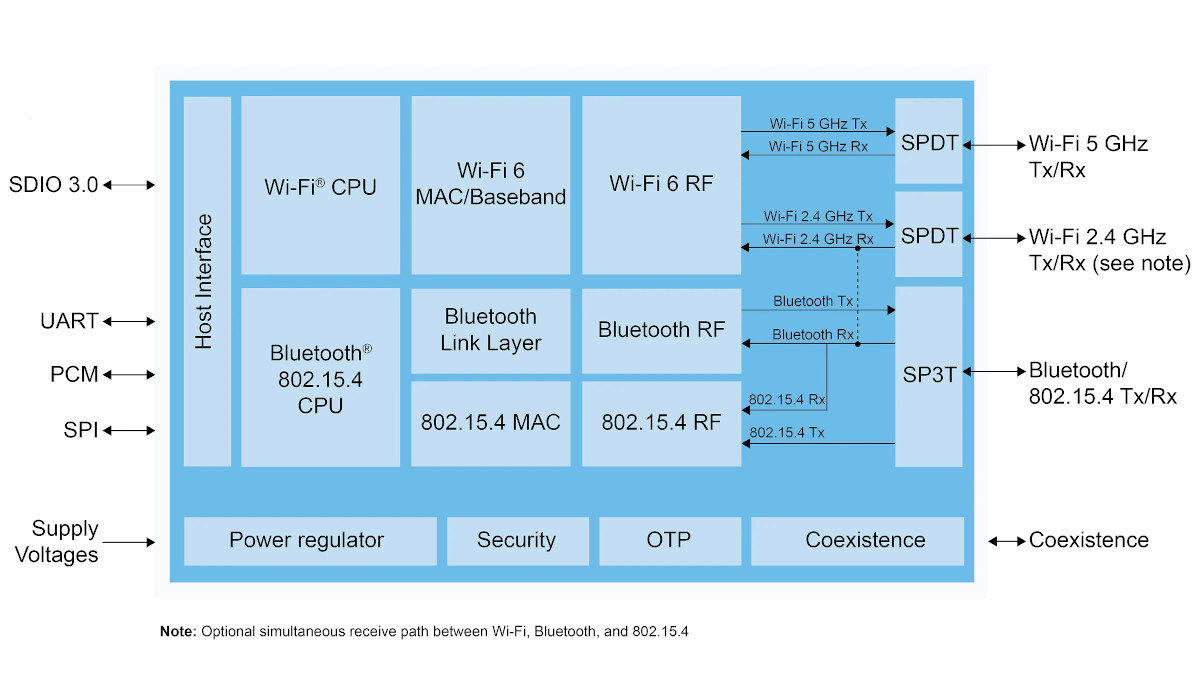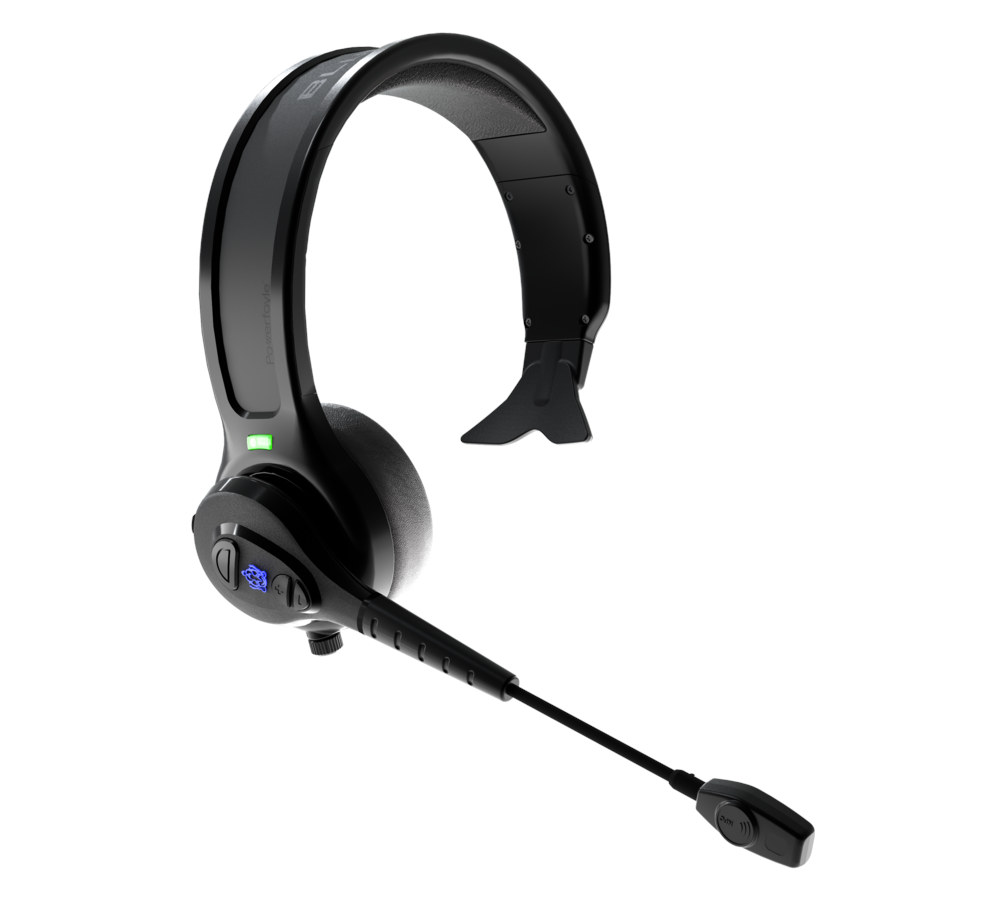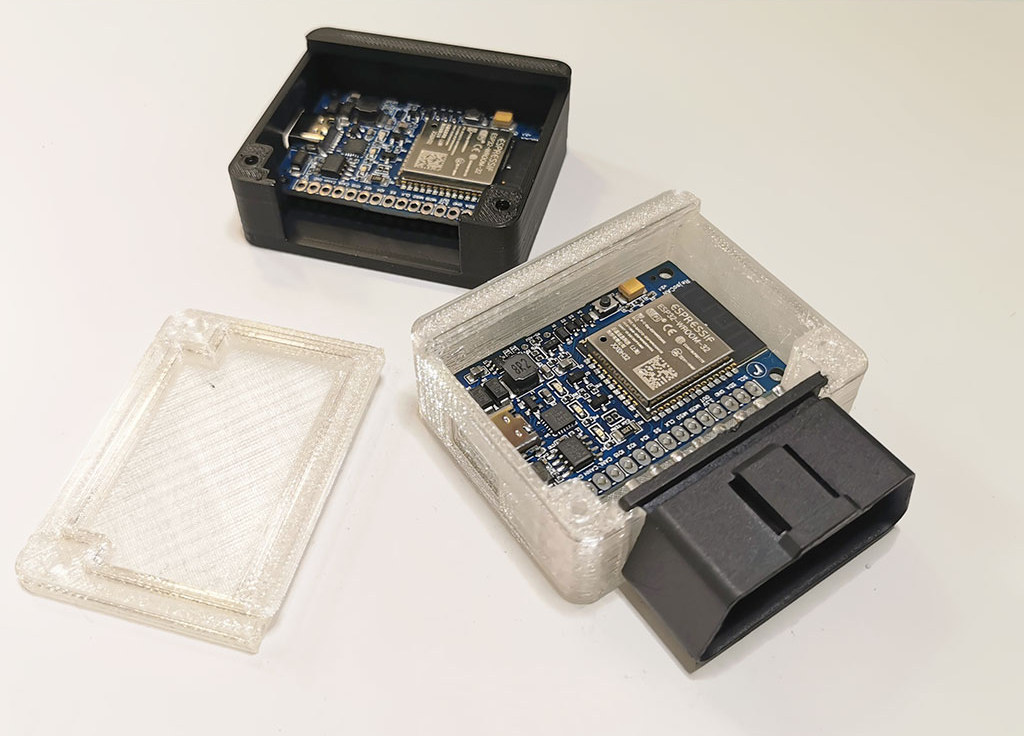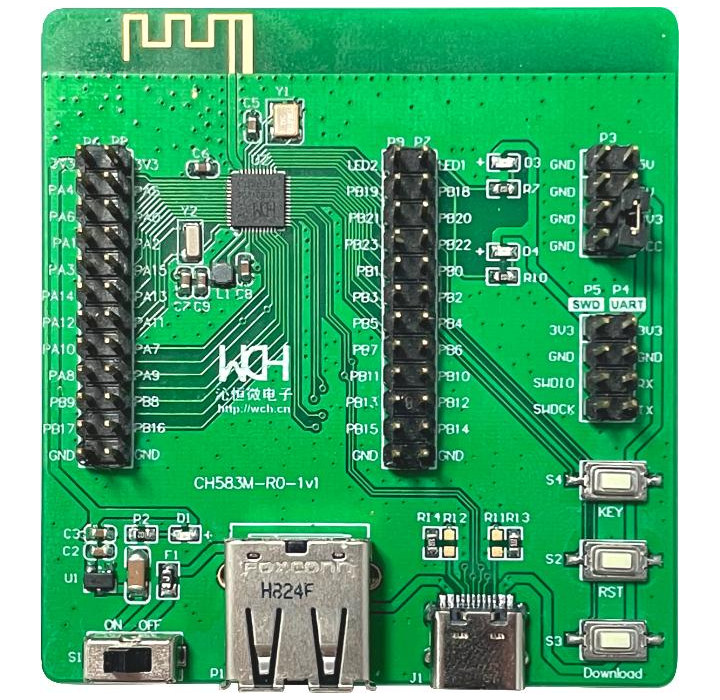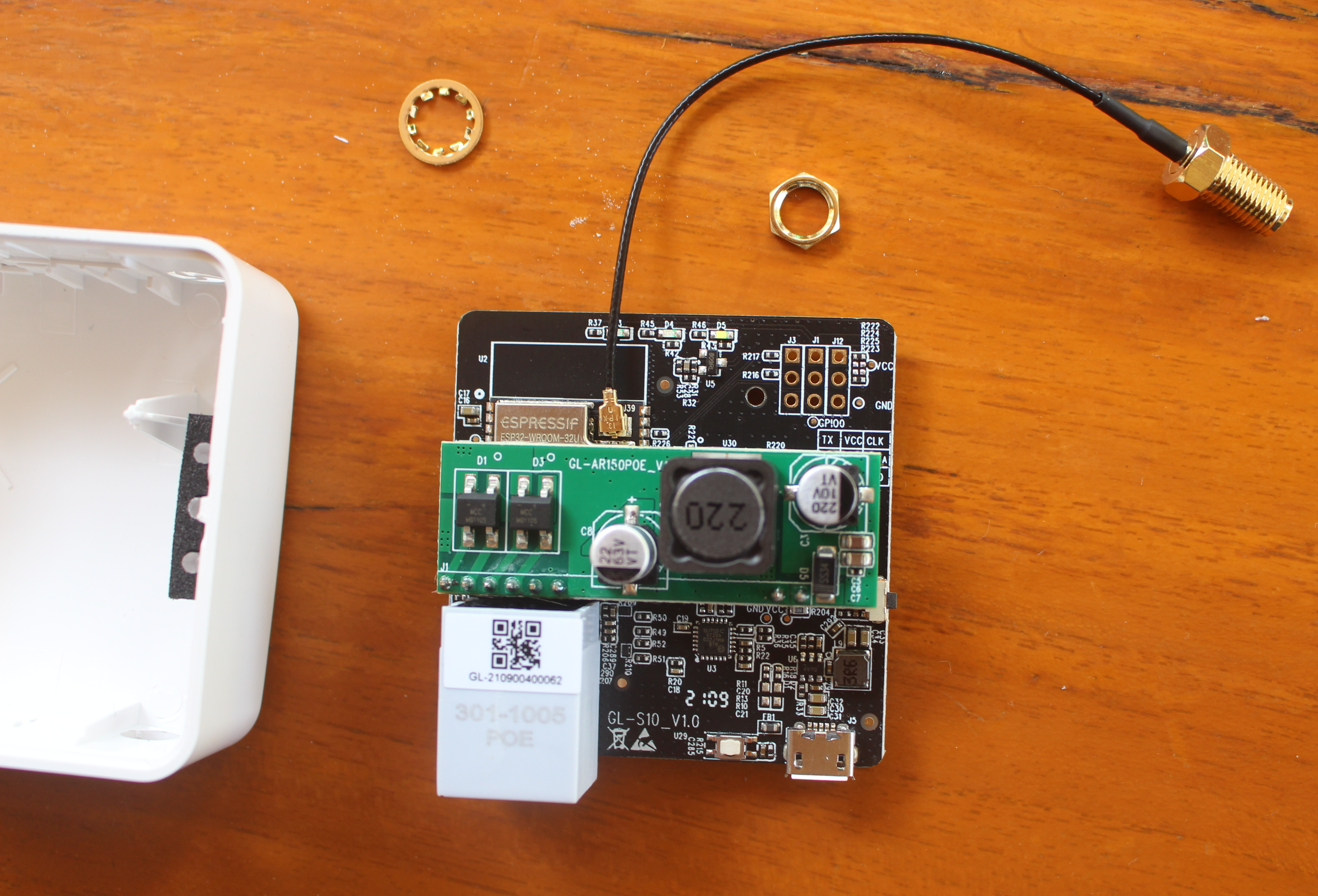Machine Learning is getting everywhere including into 2.4GHz wireless microcontrollers with SIlicon Labds BG24 Bluetooth and MG24 multi-protocol Cortex-M33 microcontrollers that improve AI/ML performance by 4 times using 1/6th of the energy thanks to a built-in AI accelerator. That makes the new microcontrollers suitable for battery-powered edge AI devices with support for Matter (coming soon) as well as PSA Level 3 Secure Vault protection. Silicon Labs expects the chips to be found in various smart home, medical and industrial applications. BG24 and MG24 share the same block diagram and the same specifications apart from the supported wireless protocols: MCU core – Arm Cortex-M33 @ 78.0 MHz with DSP instruction and floating-point unit Memory – Up to 256 kB RAM data memory Storage – Up to 1536 kB flash program memory Wireless CPU – Arm Cortex-M0+ 2.4 GHz Radio Performance -104.5 dBm sensitivity @ 250 kbps O-QPSK DSSS -104.9 dBm sensitivity […]
Bluetooth LE 5.0 module enables batteryless sensors thanks to Renesas RE01B MCU
RELOC RM-BE1 Bluetooth 5.0 module with embedded energy harvesting capabilities for batteryless sensors adds to the list of energy harvesting news we’ve written about since the beginning of the year, with UEI chip for remote controls, a devkit with a smart coffee cup, and Atmosic ATM33 BLE 5.3 chip. The RM-BE1 module is powered by Renesas RE01B Arm Cortex-M0+ Bluetooth microcontroller that leverages Renesas’ SOTB (Silicon on Thin Buried Oxide) process technology enabling ultra-low power. We’ve been told the chip can run at 35uA/Mhz with internal LDOs and <20uA/Mhz with additional external DCDCs, as well as around 600nA in standby mode. RELOC RM-BE1 module key features and specifications: MCU – Renesas RE01B Arm Cortex-M0+ microcontroller @ 64 MHz with 1.5MB flash, 256KB SRAM Connectivity Bluetooth LE 5.0 with Long Range (up to 400 m) and high data throughput (2 Mbps) support RF output power – Up to +4 dBm Receiver […]
“Extreme low power” chip with energy harvesting provides lifetime battery solution for remote controls
Most people probably don’t mind changing batteries in remote controls every so often, but it contributes to e-waste especially if you’re not using rechargeable batteries, and I always find it’s pain as I don’t usually have stock, or don’t feel like waiting for several hours to recharge the batteries. Universal Electronics Inc, or UEI for shorts, claims to have a solution with a family of QuickSet-certified chips using “Extreme Low-Power”, energy-harvesting and “high-performance technology” that would provide lifetime battery life to Bluetooth, voice remote controls. The main goal is “to help transition the world towards a more sustainable future, by reducing primary battery waste throughout the life of the product, which in turn reduces the cumulative CO2 footprint”. We don’t have a lot of information about the chip, but the company provides some of the key benefits of the Bluetooth 5.2 SoC: Arm-based with Trustzone security Up to 2.5 times […]
NXP IW612 Wi-Fi 6, Bluetooth 5.2, 802.15.4 tri-radio solution supports Matter
Matter, previously known as Project Chip, is a unified interface for Smart Home devices to improve interoperability between devices from different manufacturers and associated services like Google Assitant or Amazon Alexa. Matter can work over Thread, WiFi, Ethernet, BLE, etc… so it’s not limited by the physical layer. So far, we mostly heard about development related to Matter, and Espressif has published a series of posts about Matter to be for instance used by their upcoming ESP32-H2 wireless MCU, but I had not seen many other solutions, not commercial products. This is going to change in 2022, as Belkin announced it’s working on “redesigned smart plugs and lighting solutions” with support for Matter over Thread” that start selling this summer. Separately, NXP also announced the IW612 tri-radio solution with Matter support and dual-band WiFI 6, Bluetooth 5.2, and 802.15.4 radios. NXP IW612 IW612 key features and specifications: Dedicated, independent CPUs […]
Solar-powered Bluetooth headset with Powerfoyle nano-material band remains charged at all times
Blue Tiger Solare is a solar-powered Bluetooth headset that you may never need to charge thanks to a Powerfoyle solar cell headband comprised of a “nano-material that transforms any outdoor and indoor light into clean, endless energy”. Solare Bluetooth 5.1 headset is said to be military-grade (MIL-STD-810), offers 97% noise cancellation, and is mostly designed for “road warriors” who may require a Bluetooth headset that’s charging continuously. I initially thought it would probably work better for hikers, bicycle and motorbike riders, than car drivers unless we’re talking about convertibles, but Blue Tiger caters to professional truck drivers. Solare highlights: Bluetooth 5.1 with up to ~90 meters range High-quality speaker Microphone with 97% noise cancellation Works with Sir and Google Assistant Endless Battery Life with Powerfoyle solar cell flexible headband Temperature Range – -40°C to +50°C Certifications IPX4 ingress protection rating MIL-STD-810 for extreme environments and ruggedness Solare solar-powered Bluetooth headset […]
ESP32 CAN board fits into OBD-II dongle, supports auto shutdown
RejsaCAN-ESP32 is a small board based on ESP32-WROOM-32 WiFi (and Bluetooth) module with a CAN interface that fits into a 3D printed OBD-II dongle for easy installation into most cars. Magnus Thomé has already published several automotive projects, notably for car racing with a system that checks real-time tire temperature, and he designed RejsaCAN-ESP32 board so that it can be plugged directly into his car with support for 5-15V input voltage, and also includes an auto-shutdown option to prevent battery drain by monitoring the battery voltage in the car. RejsaCAN-ESP32 specifications: Wireless module – ESP32-WROOM-32 module with a dual-core ESP32 processor @ 240 MHz with 2.4 GHz WiFi 4 and Bluetooth 4.2 connectivity, PCB antenna, 32Mbit SPI flash USB – 1x USB-C port for power and programming via CP2104 USB to TTL chip Expansion – 15-pin header with 3x GPIO, SPI, I2C, analog input, PWM or analog output, CAN bus […]
CH583 RISC-V microcontroller supports Bluetooth 5.3 LE
Following up on the CH572 RISC-V BLE microcontroller with 10KB SRAM, WCH has now introduced the CH583 RISC-V microcontroller with 32KB SRAM, 1 MB flash, and support for the latest Bluetooth 5.3 LE standard. The new microcontroller also offers a wide range of peripherals with two USB host/device interfaces, up to 40 GPIOs, four UART, two SPI, one I2C, up to 14 ADC interfaces, and more. WCH also offers CH581 and CH582 microcontrollers with a different minimum input voltage, less storage (256KB for CH581) and/or peripherals. CH581, CH582, CH583 specifications: MCU core – 32-bit RISC processor WCH RISC-V4A with RV32IMAC instruction set Memory – 32 KB SRAM Storage – 512KB non-volatile storage FlashROM: 448KB user application program memory area CodeFlash 32KB user non-volatile data memory area DataFlash 24KB system boot program memory area BootLoader 8KB system non-volatile configuration information memory area InfoFlash BLE Connectivity Bluetooth Low Energy (BLE) v5.3 Integrated […]
Review of an ESP32-based BLE to MQTT gateway – Part 1: GL.inet GL-S10 unboxing and teardown
GL.inet introduced the GL-S10 BLE to MQTT IoT gateway last month with an ESP32 module offering WiFi and Bluetooth connectivity, as well as Ethernet and PoE support. I got offered a sample for review, and just received it together with the optional BLE beacon. So today, I’ll first have a look at the content, and check out the hardware with a teardown. GL.inet GL-S10 unboxing The package shows us the main features with Bluetooth LE 4.2, WiFi, PoE, and external antenna, with GL-S10 described as a BLE IOT GATEWAY connecting IoT devices to the Cloud. The gateway ships with a getting started guide, an antenna, a USB cable for power, as well as the beacon which we can see with a 3M stick tape. On one side, we have the RJ45 connector for Ethernet and a micro USB port for power, while the other side features a reset button, plus […]


